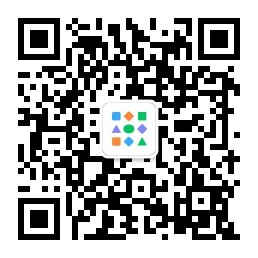| 直接附代码 前端代码: <%@ page language="java" import="java.util.*" pageEncoding="UTF-8"%> <% String path = request.getContextPath(); String basePath = request.getScheme()+"://"+request.getServerName()+":"+request.getServerPort()+path+"/"; %>
<!DOCTYPE HTML> <html> <head> <base href="<%=basePath%>"> <title>My WebSocket</title> </head>
<body> Welcome<br/> <input id="text" type="text" /><button onclick="send()">Send</button> <button onclick="closeWebSocket()">Close</button> <div id="message"> </div> </body>
<script type="text/javascript"> var websocket = null;
//判断当前浏览器是否支持WebSocket if('WebSocket' in window){ websocket = new WebSocket("ws://localhost:8080/myWebSocket/websocket"); } else{ alert('Not support websocket') }
//连接发生错误的回调方法 websocket.onerror = function(){ setMessageInnerHTML("error"); };
//连接成功建立的回调方法 websocket.onopen = function(event){ setMessageInnerHTML("open"); }
//接收到消息的回调方法 websocket.onmessage = function(event){ setMessageInnerHTML(event.data); }
//连接关闭的回调方法 websocket.onclose = function(){ setMessageInnerHTML("close"); }
//监听窗口关闭事件,当窗口关闭时,主动去关闭websocket连接,防止连接还没断开就关闭窗口,server端会抛异常。 window.onbeforeunload = function(){ websocket.close(); }
//将消息显示在网页上 function setMessageInnerHTML(innerHTML){ document.getElementById('message').innerHTML += innerHTML + '<br/>'; }
//关闭连接 function closeWebSocket(){ websocket.close(); }
//发送消息 function send(){ var message = document.getElementById('text').value; websocket.send(message); } </script> </html>后端代码: import java.io.IOException; import java.util.concurrent.CopyOnWriteArraySet;
import javax.websocket.OnClose; import javax.websocket.OnError; import javax.websocket.OnMessage; import javax.websocket.OnOpen; import javax.websocket.Session; import javax.websocket.server.ServerEndpoint;
//该注解用来指定一个URI,客户端可以通过这个URI来连接到WebSocket。类似Servlet的注解mapping。无需在web.xml中配置。 @ServerEndpoint("/websocket") public class MyWebSocket { //静态变量,用来记录当前在线连接数。应该把它设计成线程安全的。 private static int onlineCount = 0;
//concurrent包的线程安全Set,用来存放每个客户端对应的MyWebSocket对象。若要实现服务端与单一客户端通信的话,可以使用Map来存放,其中Key可以为用户标识 private static CopyOnWriteArraySet<MyWebSocket> webSocketSet = new CopyOnWriteArraySet<MyWebSocket>();
//与某个客户端的连接会话,需要通过它来给客户端发送数据 private Session session;
/** * 连接建立成功调用的方法 * @param session 可选的参数。session为与某个客户端的连接会话,需要通过它来给客户端发送数据 */ @OnOpen public void onOpen(Session session){ this.session = session; webSocketSet.add(this); //加入set中 addOnlineCount(); //在线数加1 System.out.println("有新连接加入!当前在线人数为" + getOnlineCount()); }
/** * 连接关闭调用的方法 */ @OnClose public void onClose(){ webSocketSet.remove(this); //从set中删除 subOnlineCount(); //在线数减1 System.out.println("有一连接关闭!当前在线人数为" + getOnlineCount()); }
/** * 收到客户端消息后调用的方法 * @param message 客户端发送过来的消息 * @param session 可选的参数 */ @OnMessage public void onMessage(String message, Session session) { System.out.println("来自客户端的消息:" + message);
//群发消息 for(MyWebSocket item: webSocketSet){ try { item.sendMessage(message); } catch (IOException e) { e.printStackTrace(); continue; } } }
/** * 发生错误时调用 * @param session * @param error */ @OnError public void onError(Session session, Throwable error){ System.out.println("发生错误"); error.printStackTrace(); }
/** * 这个方法与上面几个方法不一样。没有用注解,是根据自己需要添加的方法。 * @param message * @throws IOException */ public void sendMessage(String message) throws IOException{ this.session.getBasicRemote().sendText(message); //this.session.getAsyncRemote().sendText(message); }
public static synchronized int getOnlineCount() { return onlineCount; }
public static synchronized void addOnlineCount() { MyWebSocket.onlineCount++; }
public static synchronized void subOnlineCount() { MyWebSocket.onlineCount--; } }
微信小程序端发起请求:
connectWebSocket:function(){ |
原作者: 郑春宏 来自: http://blog.csdn.net/v824394795/article/details/53507645


作为官方,能不能看下我反馈的这个bug,谢谢了。https://developers.weixin.qq.com/community/develop/doc/0004c0849ac25889049726ab656000